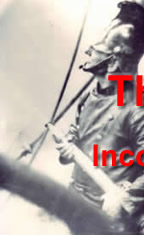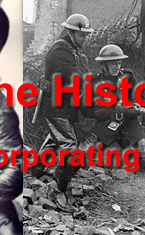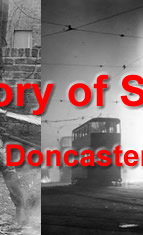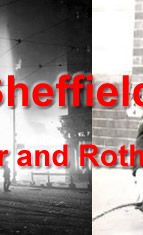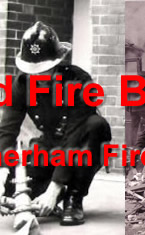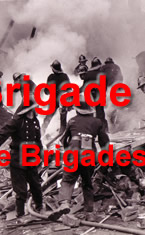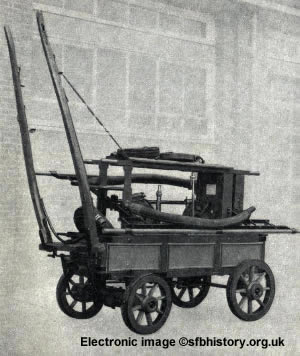
Fire Marks
During this period, and before, "Fire Marks" were attached to the insured building and these enabled the Insurance Brigades to identify the property insured by their Company. Sometimes several Brigades would attend a fire and having found out (by means of the fire mark) with which Company the building was insured, the rival Brigades would either return to their stations, or in some cases actively obstruct the Brigade who were attempting to put out the fire; as for example, by cutting the hose. The fighting between Brigades very often led to persons insuring their property with more than one Company to make sure that any fire would be extinguished by one or other of the Brigades.
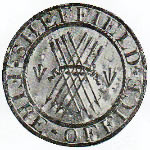 Sheffield Fire Office Established 1808
Sheffield Fire Office Established 1808
The newspaper Sheffield Iris had a notice in the edition of 5 January 1808 to the effect that 'at an extremely numerous and respectable meeting of the inhabitants of the town and neighbourhood of Sheffield, convened by public advertisement, and held at the Cutler's Hall, to consider on the propriety of establishing a Fire Office in Sheffield; the Master Cutler in the Chair', a resolution had been passed to establish such an office.
The capital was £300,000 in shares of £100 each, 10 per cent paid up. The sum of £200,000 was quickly subscribed, and the Sheffield Fire Office started business on 24 June 1808. The company had the backing of the many local cutlery and allied engineering firms and made good progress, although it did not insure outside Sheffield and the surrounding district. The first office of the company was in the Market Place, but before the end of the first year it moved to larger premises in the Hay Market. This building had the offices on the first floor with manual horse-drawn fire engines housed on the ground floor. The brigade consisted of ten firemen and an engineer under Mr Staniforth, the foreman.
The Council also recommended that the inhabitants should encourage that Office by giving it preference in any insurances they had to place. The Sheffield Fire Office Fire Mark was based on the arms of Sheffield. The eight arrows crossed, with a broad arrowhead at each side, represent the cutlery industry for which the town is known.
Photograph: 'Sheffield Fire Brigade - A Brief History'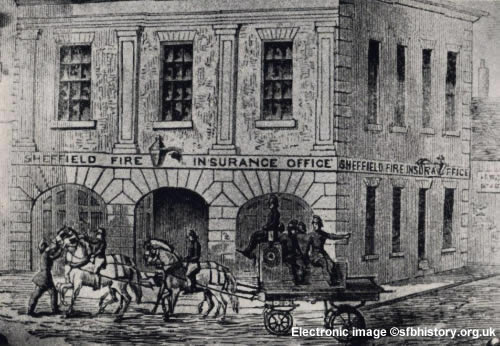 |
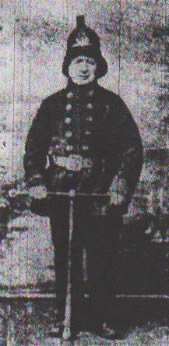 19th Century Insurance Fireman Photograph researched by John Hague |
The picture above shows the Sheffield Fire insurance Office in George Street, with the fire brigade practicing on the open space adjacent to the office that still existed in 1932 opposite the Alliance Insurance Co.’s building.
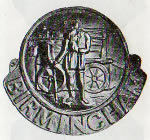 |
Birmingham Fire Office At a meeting at the Town Hall on the 18th April, 1811 it was agreed that the Birmingham Fire Office be at liberty to station one of their engines at Attercliffe, the insurances effected there to be considered as Sheffield insurances. Firemen were to attend all fires but when the premises were not insured with the Birmingham Fire Office the occupier had to defray the expenses. |
Sheffield Town Council Formed in 1843
When the Sheffield Town Council was born in 1843 the Fire Brigade and fire engines were still the property of private associations that existed for mutual insurance among their members against loss by fire.
Notice - Sheffield Fire Office, George Street, Sheffield, Dec., 1856."
 "The Directors of the SHEFFIELD FIRE OFFICE beg to call the attention of their Shareholders and Townsmen, and the Inhabitants of this Neighbourhood generally, to the Special Claims which they conceive this long-established Loan Office has for their patronage and support.
"The Directors of the SHEFFIELD FIRE OFFICE beg to call the attention of their Shareholders and Townsmen, and the Inhabitants of this Neighbourhood generally, to the Special Claims which they conceive this long-established Loan Office has for their patronage and support.
It was the first Office in the Town of Sheffield.
It has been in active operation for nearly Half a Century. The Shareholders are principally Inhabitants of the Town and Neighbourhood of Sheffield.
The Directors are all resident in or near the Town, which greatly conducts to a prompt and liberal adjustment of all Claims that may arise.
No expense attends to the Transfer of Policies from other Offices, and all alterations are made Free from Charge.
From the extent and character of the Company’s Business, it is enabled to effect Insurance Rates as low as those of any substantial and safely-conducted Office; and parties Insuring in it possess the advantages of having, FREE OF ALL CHARGE, the use of the Company’s powerful and efficient ENGINES, whenever required.
Any information as to the Company’s Rates and Particulars of Insurance, or otherwise, will be gladly afforded on application, either by letter or personally, to MR. CHARLES ESAM, the Company’s Secretary.
Sheffield Daily Telegraph, 1 October, 1857
Sheffield Fire Office
NOTICE IS HEREBY GIVEN, that INSURANCES effected at this Office, and falling due at Michaelmas, must be Renewed within Fifteen Days from that period. The Renewal Receipts are now ready and be had at the Company’s Office, George-street, and of their various Agent.
Insurances may be made with this Company for a shorter period than a Year, by Special Agreement, and Persons desirous of Insuring for Seven Years will be charged for Six Years only.
Losses by Fire, occasioned by Lightning, will be made good.
Persons Insured in the Office can, in case of Fire, have the use of Engines of both the Local Companies without any charge.
No Charge made by this Company for Policies removed from any other Office.
Attendance at the Office of the Company from Ten till Four, where Prospectuses can be had Gratis
Sheffield Daily Telegraph, August, 1858
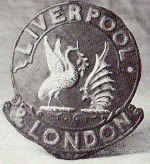 THE LIVERPOOL AND LONDON FIRE AND LIFE INSURANCE COMPANY Amalgamated with the NORTH OF ENGLAND INSURANCE COMPANY Established in 1836 – Empowered by Special Acts of Parliament 0FFICES: Dale, Street, Liverpool; 20 and. 21, Ponltry, London; 11, King-street, Manchester; 128, Ingrtam-street, Glasgow; and 17 OLD HAYMARKET, SHEFFIELD. |
DIRECTORS IN SHEFFIELD:
GEO. WILTON CHAMBERS Esq, CHAIRMAN.
JOHN CARR, ESQ, DEPUTY CHAIRMAN.
CHARKES FISHER Esq
HENRY WILKINSON, Esq.
SWINTON BOULT, Esq.
CONSTITUTION AND CAPITAL. - Liability of the entire body of Shareholders unlimited. All directors must be Proprietors in the Company. The Capital is £2,000,000, divided into 100,000 shares of £20 each, 94,211 of which are in the hands of the Proprietors.
FIRE DEPARTMENT. — The Premiums received were, in
1837. £11.986 17s. 2d. |
1847. £41,402 14s. 0d. |
1857 £289,251 0s. 4d. |
Insurances maybe effected with the Company at as low rates as are consistent safety. Claims are settled with liberality and promptitude.
LIFE DEPARTMENT.—The Premiums received were in
1837 £1,754. 13s. 7d. |
1847 *£21,997 10s. 6d. |
1857 £110,928 14s. 4d. |
The Directors invite attention to the system of Guaranteed Bonuses, by which 'is secured:—I Exemption from Liability in partnership under any possible circumstance 2. 2. Bonuses, which are not contingent on profits, but fixed and guaranteed by the whole resources of the Company.
JOSEPH TURNER, Resident Secretary.
Sheffield, August 1858
N.B. The Company’s Fire Brigade is at the call of Insurers and the Public at a moments notice. Engine Station, No. 18 Norfolk-street, where notice should be immediately given in case of accident.
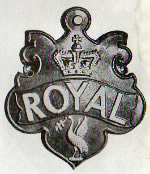 |
The Royal Insurance Company In 1860 a brigade belonging to the Royal Insurance Company was established at Bank Street. |
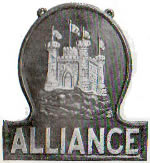 |
Alliance, British and Foreign Fire and Life Insurance Company In 1863 negotiations were entered into with the Alliance, British and Foreign Fire and Life Insurance Company, who wanted to take over the business. The negotiations were conducted by Robert Lewis, Inspector of Agents for the Alliance, and resulted in the absorption of the Sheffield Fire Office that same year. This gave the Alliance valuable connections in Sheffield, where it also began life assurance business, which the local company had not transacted. |
1863 - Sheffield Town Council Provide a Fire Escape Station at the Town Hall
Chief Clerk - John England
Office Keepers - William Laughton and W. H. Cook
Police Fire Brigade
Superintendent - F. Otter
Assistants W. Pope, and D. Pilmore
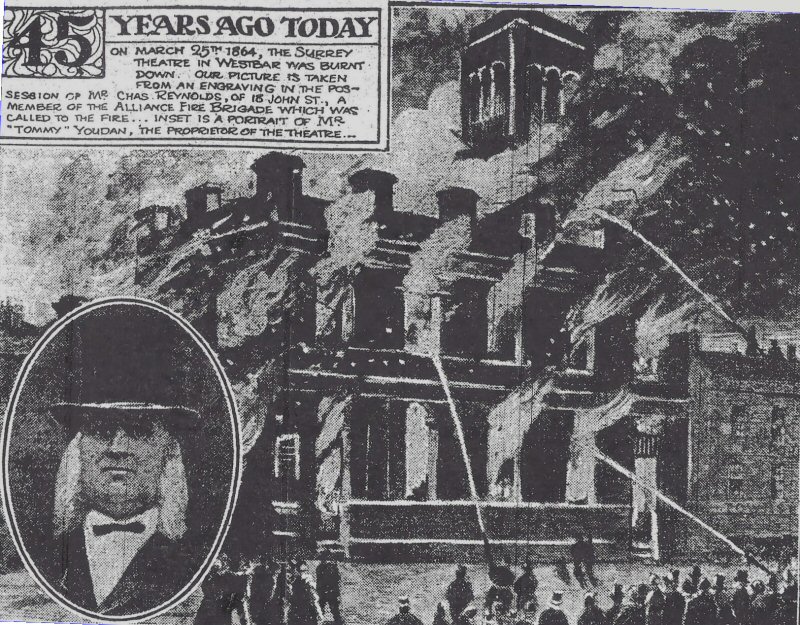 |
Picture researched and supplied by John Hague |
However, the brigades provided by the insurance companies still prevailed, and one insurance company had an advertisement which stated that they would attend fires in Sheffield whether the property was insured by them or not. This Company seems to have realised that fire does not discriminate between properties and the other companies soon appreciated that they must work together, as is well illustrated by the following article taken from the Sheffield Daily Telegraph for Thursday, May 7th, 1868.
Sheffield Daily Telegraph for Thursday, May 7th, 1868.
"The destructive fire, the details of which we recorded in the Telegraph yesterday morning, was discovered by Charles Butler, night Cabman to the Sheffield Carriage Company, who was standing with his cab in Angel Street at two o'clock. Having ascertained where the fire was, he instantly roused the people in the adjacent houses, and then ran to one of the Fire Offices. Had it not been for his promptness we should doubtless have had to record the loss of life as well as property.
The first engine on the scene was the "Royal" which was speedily set going, and poured a stream into the first floor by the window; but so fierce was the fire that for some time the water was quite powerless in subduing it. The Alliance engine quickly followed, and with a hose, ran up the passage, attacked the fire in the rear, and here, as in the front, the body of water was quite inadequate to the body of the fire. On the arrival of the Liverpool and London engine the exertions of the Royal were aptly supported in front, while the Alliance succeeded in checking the spread of the flames at the back.
|
For a time the three engines continued to work with steadiness, but still the fire burned with fury, threatening the contiguous buildings. After the most praiseworthy exertions, on the part of the three Brigades, the force of the flames in the lower part of Mr Tasker's shop was somewhat reduced but, as if in mockery of all attempts at subjugation, the fire broke out with redoubled fury in the upper storey, at which elevation neither strength of water nor power of engine could reach it. For considerable time it blazed with destructive and unchecked force, but when a large engine belonging to the Royal was brought upon the scene, a strong and continuous stream of water reached the upper storey and effectively suppressed it. By three o'clock the fire was under control, and shortly after completely extinguished. Though the attempts of the firemen to circumscribe the area of the destruction were, under the circumstances marvelously successful, the premises of Messrs. Coker, Shaw and Robertshaw were more or less damaged both by fire and water. It is gratifying to be able to record that by the timely warning which was given the people who were sleeping in adjacent houses got safely out, and found a comfortable refuge in the Angel Inn. From what we can learn, we understand that the fire originated in a fireplace in connection with a newly erected machine in the back shop, and communicated with the room above, which was stored with combustible material. The loss sustained by Mr. Tasker has been estimated at £4,000 which is only partly covered by insurance. The property is insured in the Alliance and Sun Fire Offices". |
A contemporary Article in the “Star” on 16th January 1933 recalls the memories of a fireman who served during the insurance company era.
*Note: The sixties referred to are the 1860’s
Many memories of old-time fire-fighting in Sheffield will be recalled by the death, which occurred at the City General Hospital, Sheffield, of Mr. Robert Heald, the last surviving member of the old Alliance Fire Brigade.
Mr. Heald was 87 years of age, and the Alliance Brigade, of which he was for some years a member, was established in the *sixties in the days when fire-fighting services were provided by the leading insurance companies for the benefit of their clients, and before the local authority assumed responsibility for a central brigade.
Mr. Heald became associated with the Alliance Brigade, as a call-boy, at the age of 12 and performed these duties until, he was 19. The brigade headquarters were in George Street and there were three engines all horse drawn.
In an interview with the "Star" some time ago, Mr. Heald recalled a terrible blaze in West Bar, which lasted for three days. He had a vivid memory of one fire he attended on the night of the Sheffield flood.
The fire was in Alma Street; and at the back of the buildings there were bodies of men, women and animals drowned in the flood.
The funeral will take place at the General Cemetery, to-morrow, at 2 o'clock. A party of Sheffield firemen will act as bearers."
On May 12th 1869, the Sheffield Town Council decided to take control of the Fire Brigade on terms agreed between itself and the Sheffield Fire Insurance Office.
| The Sheffield & Rotherham Independent, 13 May, 1869 |
The Council and the Fire Brigades |
Mr. FAIRBURN moved the adoption of the Watch Committee minutes, and spoke at some length upon the proposal of the committee that the Council should take the management of the fire brigades into their own hands. He considered that the way in which the brigades were at present managed was a scandal to the town, and he though it was high time the Council put the management of them under one responsible head. The town now spent many thousands a year in paying a protective force, and it was not too much to ask that a few hundreds more should be spent in the protection of property against fire. The cost of the Council undertaking the management of the brigades was so small a matter, only £300 a year, that the most rigid economist need have no fear, and he believed he should even have the sanction of Mr. Hutchinson to the proposal of the committee. (Hear, hear, and laughter.) However well the brigades were managed, they would never be able to work satisfactorily whilst there was a scarcity of water in the mains at night - (hear, hear) - and so long at that continued, the town would be at the mercy of any fire that broke out. The recent destruction of the Ragged Schools was another melancholy addition to the long list of property which might have been saved had a good supply of water been obtained as soon as the fire engines arrived. He could not state how long this state of things was to last, but he did feel that the town was in the most humiliating condition in reference to its water supply … Alderman CROWTHER seconded the motion .. Mr. HUTCHINSON agreed with the proposal, and in reference to what Mr. Fairburn had said respecting the scarcity of water, he observed that the Water Company allowed more water to run down the Don each month than would drown the whole of Sheffield. Yet the town was prevented from having water when it was most urgently needed … Alderman SAUNDERS differed from Mr. Fairburn as to the past management of the brigades being a scandal to the town, for the brigades had always worked well. He did not think the new management would result in any improvement, because the several fire offices had an interest in putting out fires as speedily as possible, whilst the new brigade would not have that interest. A scarcity of water had always been the greatest difficulty, and he very much wished he proposed some time ago to get the waterworks into the hands of the Council had been carried. - After a little further discussion, the motion was carried.
